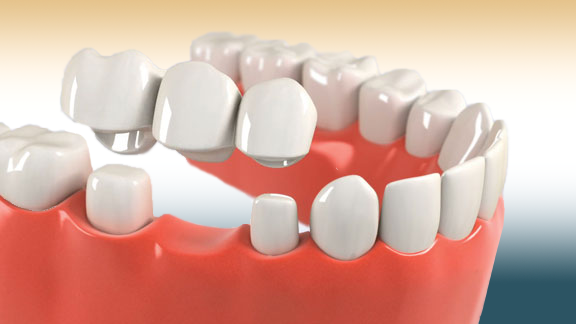When it comes to dental restorations, one of the most common concerns people have is about the pain involved. Whether it’s due to past dental experiences or fear of discomfort, many hesitate to seek necessary treatments. Among the most widely used solutions for damaged or missing teeth are dental crowns and bridges. These prosthetic devices restore function and appearance—but the question remains: Are dental crowns and bridges painful?
In truth, most patients experience only minimal discomfort during and after the procedure. Thanks to advancements in modern dentistry, techniques have been refined to prioritize patient comfort. Procedures involving Dental Crowns and Bridges in Dubai are performed with a strong focus on making the experience as smooth and pain-free as possible.
What Are Dental Crowns and Bridges?
Before diving into pain levels, it’s important to understand what these treatments entail.
A dental crown is a tooth-shaped cap placed over a damaged or decayed tooth to restore its strength, size, and function. It's commonly used after root canal treatment or when a tooth is severely worn down.
A dental bridge is used to fill a gap created by one or more missing teeth. It consists of two or more crowns for the teeth on either side of the gap (called abutment teeth) and a false tooth (or teeth) in between. These restorations are fixed and are not removable like dentures.
Is the Procedure Painful?
One of the biggest myths surrounding dental crowns and bridges is that the procedure is inherently painful. However, modern dental practices utilize local anesthesia to ensure the treatment is as comfortable as possible.
During the Procedure
The actual process of preparing a tooth for a crown or bridge may involve reshaping the enamel and taking impressions. This might sound intimidating, but local anesthesia is applied to numb the area completely. Most patients report feeling pressure, not pain, during this stage. The numbing effect usually lasts throughout the procedure, making it a stress-free experience.
After the Procedure
Once the anesthesia wears off, some mild soreness or sensitivity may occur around the treated area. This is a normal response of your body adjusting to the newly placed crown or bridge. You may also feel a slight discomfort while chewing or when the gums are adapting. However, this typically subsides within a few days.
For most individuals, over-the-counter pain relief and a soft diet are sufficient to manage this minor discomfort. It's rare for severe pain to persist unless there's an underlying issue, such as improper fitting or infection, which should be evaluated by a dental professional.
Pain vs. Discomfort: Understanding the Difference
It’s important to distinguish between pain and discomfort. Discomfort refers to sensations like pressure, mild soreness, or temporary sensitivity—all of which are expected and manageable. Pain, on the other hand, is sharper and often requires further assessment.
If you experience ongoing pain after receiving a crown or bridge, it could be due to:
- Improper bite alignment
- Infection beneath the crown
- Gum irritation
- Tooth decay not fully treated
In such cases, follow-up care is essential to ensure your dental health is maintained and your comfort restored.
Why the Fear of Pain Persists
Many people associate dental work with pain because of outdated procedures or childhood experiences. However, dentistry has advanced tremendously over the years. Techniques used today are much more efficient and patient-centered. Additionally, dentists now use a range of tools and methods to ease anxiety, including sedation options, distraction techniques, and personalized care approaches.
The success of Dental Crowns and Bridges in Dubai also owes much to patient education. Understanding the process and knowing what to expect can significantly reduce anxiety and perceived discomfort. When patients are well-informed, they’re more likely to undergo treatments with ease and confidence.

Tips to Ease Discomfort After Treatment
To ensure a smooth recovery after getting crowns or bridges, here are some simple but effective tips:
- Follow aftercare instructions provided by your dental provider.
- Avoid sticky or hard foods for a few days.
- Rinse with warm salt water to reduce gum irritation.
- Use desensitizing toothpaste if sensitivity persists.
- Practice good oral hygiene to prevent complications.
It’s also wise to avoid grinding your teeth, as this can put pressure on your new restorations and cause discomfort. A nightguard may be recommended if teeth grinding is an issue.
Long-Term Comfort and Function
Once fully healed and adjusted, crowns and bridges should feel just like your natural teeth. You should be able to speak, eat, and smile with confidence. The initial mild discomfort fades, and the long-term benefit is a healthier, more functional mouth.
What’s more, crowns and bridges help prevent surrounding teeth from shifting and support your bite alignment, contributing to your overall dental well-being. Properly cared for, they can last many years without causing pain or discomfort.
Final Thoughts
While the idea of dental treatment can be intimidating, the truth is that dental crowns and bridges are generally not painful. With anesthesia, expert technique, and proper aftercare, most patients find the process surprisingly comfortable. If you're considering Dental Crowns and Bridges Dubai, rest assured that modern methods prioritize both your health and your comfort, helping you achieve lasting results without unnecessary discomfort.





Comments